The Tiniest American Hero Left Her Mark On All Of Us
A Just 95 Pound Trailblazer That Would Not Be Denied
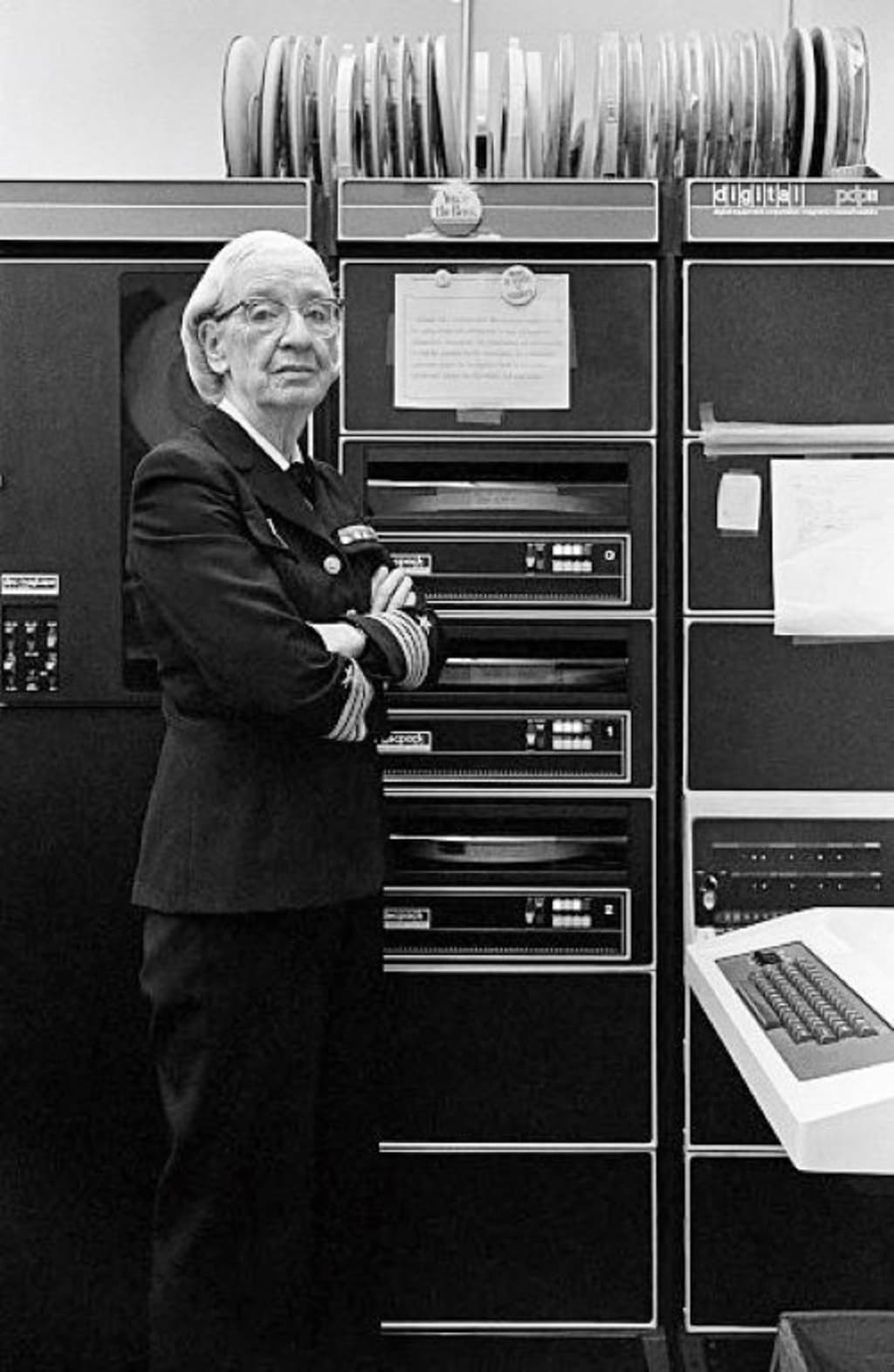
She was a tiny built whiz at math and physics, an associate professor, and wouldn’t take no for an answer. Her attitude, strength, skill, and belief in herself put her in the room with Presidents and her name lives on long after she passed.
New York City native Grace Murray Hopper was born on December 9th, 1906. In 1928 she graduated from Vassar College and received a master’s degree in 1930 from Yale. Hopper would earn her Ph.D. in 1934.
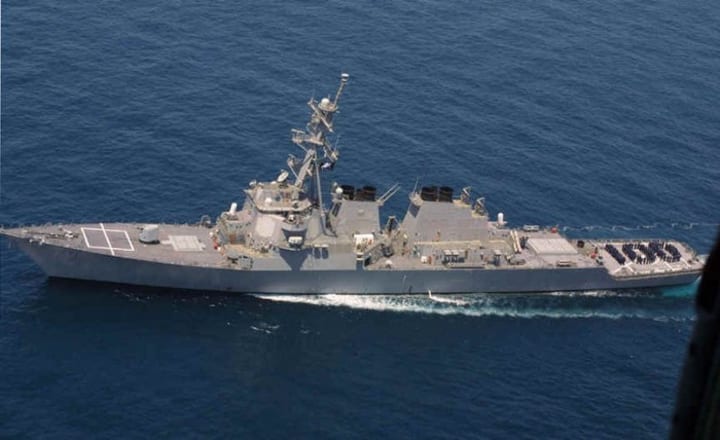
War Era Grace Hopper
As World War II started, Hopper tried to enlist in the Navy. Due to being already 34 years old, the military rejected Hopper. Hopper was also found unfit to enlist, her weight-to-height ratio too low. The military believed Hopper was a professor of mathematics, and being a mathematician was valuable to the war effort. Hopper didn’t give up on the idea of enlisting.
In 1943, at the height of the war, Hopper took a leave of absence from Vassar College and was sworn into the United States Navy Reserves. Hopper was one of many women who volunteered to serve in the Waves, and she was amongst the smallest in stature. Being 15 pounds below the Navy’s minimum weight, Hopper was required to have an exemption for her enlistment.
Hopper graduated from the Naval Reserve Midshipmen’s School at Smith College in Northampton, Massachusetts. She was first in her class in 1944 and was assigned to the Bureau of Ships Computation Project at Harvard University as a junior lieutenant. From there, Hopper served under Howard Aiken on the Mark I computer programming staff.
While at Harvard, Hopper co-authored three papers with Howard Aiken on their work with the Mark I, also known as the Automatic Sequence Controlled Calculator. Hopper requested to transfer to the regular Navy at the end of the war but was declined due to her advanced age of 38. She would remain at the Harvard Computation Lab until 1949, turning down a full professor's spot at Vassar College in favor of continuing her work as a research fellow under the Navy contract at Harvard.
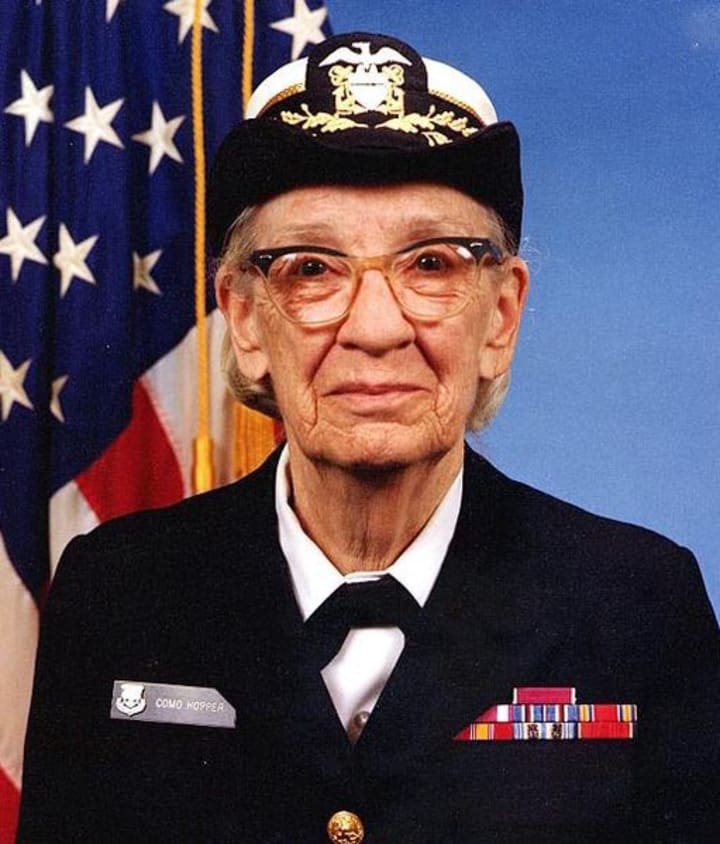
Post War Grace Hopper
Throughout her professional career, Grace Hopper published more than fifty papers and articles on software and programming languages. Her interest in applications programming sent her to the first meeting of the committee on data systems languages, with a strong interest in the development of COBOL. Hopper also served on the American National Standard Institute’s Xe 4 committee on the standardization of computer languages.
In her life, Hopper received numerous awards and held many distinguished positions. She was elected a fellow of the Institute of Electrical and Electronics Engineers in 1962. Hopper was named as the first computer science “man of the Year” by the Data Processing Management Association in 1969 and was awarded the National Medal of Technology in 1991.
Hopper retired from the Navy in 1986 as a Rear Admiral, the oldest officer on active U.S. naval duty. She was 79 years old.
Hopper passed away on January 1st, 1992, and was buried at Arlington National Cemetery. Former President, Barrack Obama awarded her the Presidential Medal Of Freedom, posthumously, in 2016.
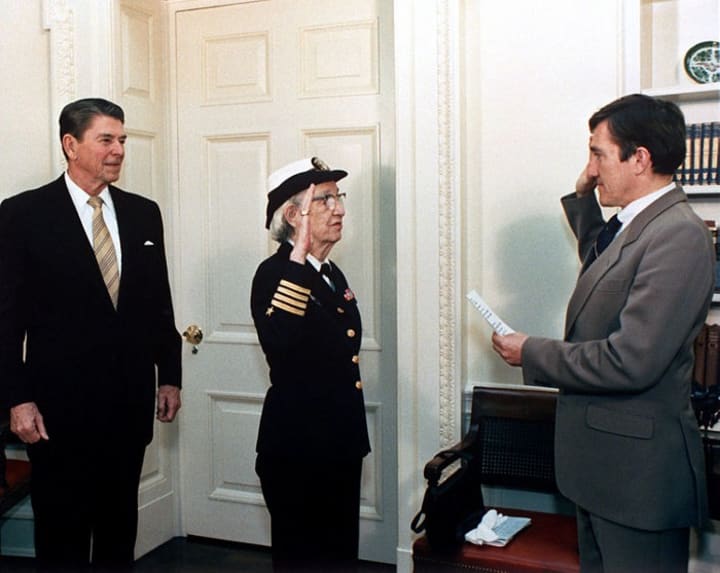
The Saying
“It’s easier to ask for forgiveness than to ask for permission.”
— Rear Admiral Grace Hopper
As a military officer in a large organization, Grace Hopper knew that in any organization operating on a global scale it’s very hard to get permission to do anything because you have to climb through the hierarchy above your boss. This is especially true if there’s no cost to the organization and substantial benefit.
While the meaning of the saying is often misinterpreted, “Ask forgiveness, not permission” probably meant:
Do the right thing within the organization, whether or not they know it. That way you can help the people you work for.
Not.
Move the extrinsic cost to the public domain so that we can profit.
Final Thoughts
Rear Admiral Grace Hopper was an incredible figure in US History that many may have not noticed. While we live in a computer-controlled, technology-dependent era, her early contributions left a footprint on all of our lives. Even before it was widely accepted that women were capable of such astonishing lives, this tiny lady left enormous imprints on the world and our country. She was a true trailblazer and pioneer in computer sciences.
The Rear Admiral made the phrase about asking for forgiveness being easier than permission popular because she believed in supporting those around her and was a leader. While it may get used inappropriately in movies, books, and television, it points toward the need for people to think decisively and do the right thing. Inside that tiny little frame was the confidence of giants. There’s something to be learned for all of us in the story of Rear Admiral Grace Hopper.
About the Creator
Jason Ray Morton
I have always enjoyed writing and exploring new ideas, new beliefs, and the dreams that rattle around inside my head. I have enjoyed the current state of science, human progress, fantasy and existence and write about them when I can.


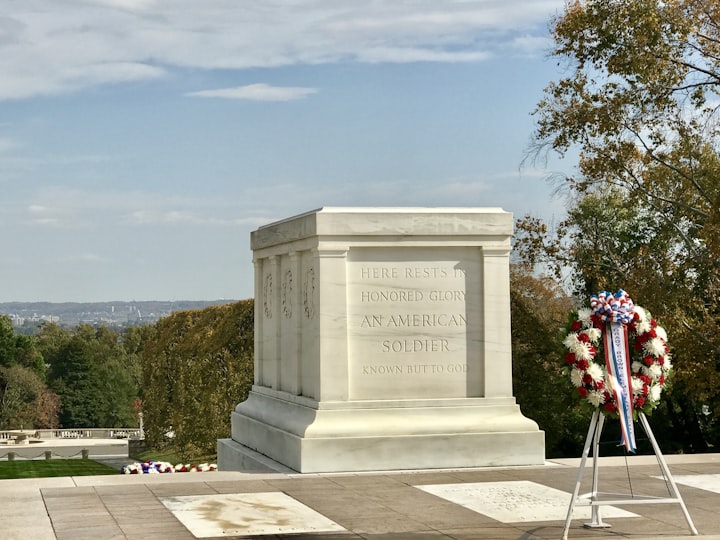



Comments
There are no comments for this story
Be the first to respond and start the conversation.